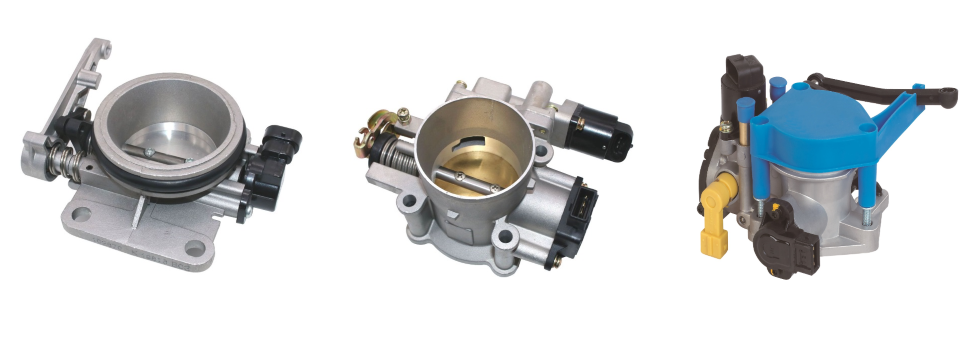With acute sinusitis, it might be difficult to breathe through your nose. Managing a sinus infection? congestion. Current. Though aspirin is approved for use in children older than 3, children and teenagers recovering from chickenpox or flu-like symptoms should never take aspirin. U.S. Department of Health and Human Services. Viruses cause most sinus infections, but bacteria can cause some sinus infections. (2019). In: Mandell, Douglas, and Bennett's Principles and Practice of Infectious Diseases. For serious staph infections, vancomycin may be required. Add raw honey for an extra boost. Renaud DL (expert opinion). Septra (trimethoprim-sulfamethoxazole) Amoxil (amoxicillin) Symptoms of a Sinus Infection Symptoms of a sinus infection are caused by the blockage of sinuses, which are hollow air spaces in the nasal area. other information we have about you. 2016;31(9):1355-61. doi:10.3346/jkms.2016.31.9.1355, Shehab N, Lovegrove MC, Geller AI, Rose KO, Weidle NJ, Budnitz DS. Sherry Christiansen is a medical writer with a healthcare background. You should also seek medical care if you have had multiple sinus infections in the past year. When your sinuses are inflamed, the area gets blocked with fluid, causing pain and in some cases, allowing bacteria to grow. A single copy of these materials may be reprinted for noncommercial personal use only. https://www.uptodate.com/contents/search. Most cases of sinusitis clear up within 10 days. Can Essential Oils Treat Sinus Congestion? Have you been around anyone with a staph infection? But when a sinus infection is caused by allergies, a virus, or a structural defect of the sinuses, other treatments may be necessary. information highlighted below and resubmit the form. The big difference is how long those symptoms linger. information highlighted below and resubmit the form. A mum whose daughter was diagnosed with a rare cancer after being told it was a sinus infection wants to make as many special memories as possible. This interferes with drainage and causes mucus to build up. Sinus infection (sinusitis). Do you smoke or are you around smoke or other pollutants? While most upper respiratory infections are caused by a virus, you can develop a secondary bacterial infection, like pneumonia, sinusitis, bronchitis, strep throat, or an ear infection. J Korean Med Sci. Any use of this site constitutes your agreement to the Terms and Conditions and Privacy Policy linked below. This site complies with the HONcode standard for trustworthy health information: verify here. At Brazos Valley Allergy & Asthma Clinics, we strive to help our patients be as healthy as possible with respect to their allergies, asthma, and immune system. https://www.ecfr.gov/cgi-bin/text-idx?SID=76be002fc0488562bf61609b21a6b11e&mc=true&node=se21.4.201_1314&rgn=div8. Any given adult will get a cold at least a couple of times a yearusually in the fall and winter. Use a decongestant or saline nasal spray. You should only be taken according to what your doctor or physician has prescribed. By Jennifer Welsh doi:10.1371/journal.ppat.1003057, Baiu I, Melendez E. Epiglottitis. What are the symptoms of a sinus infection? This material is provided for educational purposes only and is not intended for medical advice, diagnosis or treatment. drinking plenty of fluids taking painkillers, such as paracetamol or ibuprofen (do not give aspirin to children under 16) avoiding allergic triggers and not smoking cleaning your nose with a salt water solution to ease congestion Some antibiotics are used to attack a wide range of bacteria while others are highly specialized to target only certain bacteria. Make an appointment with a doctor if you have severe symptoms, or if the following symptoms last longer than 10 days or keep coming back: fever. Here's information to help you get ready for your appointment. This fluid buildup allows germs to grow. Never give aspirin to children because it can cause Reyes syndrome. For acute sinusitis, questions to ask your doctor include: Your doctor is likely to ask you questions, such as: Mayo Clinic does not endorse companies or products. A sinus infection has similar symptoms to a common cold. Theyll do this by: Amoxicillin (Amoxil) is a commonly prescribed drug for acute sinus infections. Healthline Media does not provide medical advice, diagnosis, or treatment. https://www.uptodate.com/contents/search. Make sure to store it correctly (especially if it needs to be refrigerated). Sinusitis update. All Rights Reserved. Upper respiratory tract infections are usually caused by viruses, like rhinovirus, coronavirus, or influenza, though rarely (about 2% of the time) they are caused by bacteria. There are many side effects of antibiotics. That can be through sexual activity, or because of poor handwashing or contaminated food . When you see your doctor, expect a thorough examination of your sinuses. Inhaling steam, drinking apple cider vinegar diluted in water, using cold and hot compresses, etc., help lower the symptoms. An acute sinus infection, also called sinusitis, is usually caused by a virus. How can I tell if my infection is getting better or worse? You'll soon start receiving the latest Mayo Clinic health information you requested in your inbox. 2016;316(20):21152125. Holland TL, et al. I would add a 1/2 to 1 teaspoon of baking soda to . Accessed Feb. 17, 2022. Kellie Atkinson's daughter Olivia was just three . the unsubscribe link in the e-mail. (2) However, these researchers concluded that the potential harms from use of antibiotics to manage sinusitis, including adverse effects (e.g., diarrhea), increased risk of antibiotic resistance, and cost, clearly outweigh the potential minor benefits. By Sherry Christiansen "Mayo," "Mayo Clinic," "MayoClinic.org," "Mayo Clinic Healthy Living," and the triple-shield Mayo Clinic logo are trademarks of Mayo Foundation for Medical Education and Research. It is usually treated with penicillin. Visit Sinus Rinsing for Health or Religious Practice for information on how to safely use a sinus rinse. Mayo Clinic. (Symptoms must include discolored nasal secretions AND facial or dental tenderness to percussion.). Most sinus infections don't need antibiotics and will start to get better without treatment. Swelling of the epiglottis, the flap of tissue covering the windpipe, is potentially life-threatening, particularly in children ages 2 to 5 years. 1998-2023 Mayo Foundation for Medical Education and Research (MFMER). A sinus infection that persists for longer than a week or continues to get worse during this time period is more likely to be bacterial. What is the best antibiotic to treat a sinus infection? You can contact him at any of the Brazos Valley Allergy & Asthma Clinics for professional allergy, asthma, and immunology services to patients at six locations throughout the Brazos Valley. Saline irrigation spells relief for sinusitis sufferers, Ten home remedies to relieve sinus pain and pressure, A fever (which may indicate a bacterial infection) is present, Clear and definite signs of a bacterial infection, such as redness, swelling, or pus. Applying moist, warm heat may help soothe sinus pain. Reye's syndrome. The infection is treated with a combination of drugs, including the antibiotic azithromycin, the antifungal fluconazole, the antimicrobial drug miltefosine and the corticosteroid dexamethasone. Your doctor can usually make the diagnosis based on the physical exam. In some cases, bacteria, or rarely fungus, may cause asinus infection. Why are doctors less likely to prescribe antibiotics these days? Covering your nose and mouth when sneezing or coughing. This content does not have an English version. JAMA. Take a probiotic and eat fermented foods like yogurt and kefir. It takes time to get over sinusitis. Treatment with nonsteroidal anti-inflammatory drugs (NSAIDs) to relieve pain, decongestants to remove congestion in the sinuses, and moist heat to relieve pressure can usually help clear up the infection. Amoxicillin is typically prescribed for 7-10 days at a . National Center for Complementary and Integrative Health. She has worked in the hospital setting and collaborated on Alzheimer's research. Only used distilled water. In the rare instance that an antibiotic is needed to treat a sinus infection, amoxicillin or amoxicillin/potassium clavulanate is recommended. These foods contain lots of vitamin C to fight off viruses. Other prescription medicines for sinus infection include Cefaclor, Sulfamethoxazole, Azithromycin, Clarithromycin, and Loracarbef. Amoxicillin rash: When should I be concerned? Bacteria that infect the upper respiratory tract are most often S. pyogenes (a group A streptococcus), or sometimes H influenzae. OTC medications that may help include: Decongestants. Antibiotic-resistant strains of staph bacteria are often described as methicillin-resistant Staphylococcus aureus (MRSA) strains. Options include. Other methods that might be used to diagnose acute sinusitis and rule out other conditions include: Most cases of acute sinusitis get better on their own. You may opt-out of email communications at any time by clicking on Whether your sinus infection turns out to be viral or bacterial, you can help to ease your symptoms early on with supportive sinus care: Use saline spray two to three times per day in each nostril . Menstrual cycle. Eucalyptus oil can help open up the sinuses and get rid of mucus. If a secondary bacterial infection should develop, one treatment of choice is amoxicillin-clavulanate ( Augmentin ). The sinuses are the air-filled pockets in the bones of the face that form the top part of the respiratory tract. Over-the-counter (OTC) pain relievers and decongestants may help relieve facial pain and sinus congestion associated with acute sinusitis. For. Your symptoms, including any that seem unrelated to the reason for your appointment, Key personal information, including whether you have allergies or asthma, and family medical history, All medications, vitamins or other supplements you take, including the doses. This drug is usually used to stop the growth of bacteria and is administered orally. If you go to the healthcare provider with a cold, theyll generally treat your symptoms, including suggesting you: There are only a few situations in which your healthcare provider might prescribe antibiotics when youre dealing with a cold or flu. Thank you, {{form.email}}, for signing up. Clinical report Fever and antipyretic use in children. US emergency department visits for outpatient adverse drug events, 2013-2014. However, there are many types of antibiotics your doctor may prescribe, which is the best antibiotic for sinus infection in adults. When you visit the site, Dotdash Meredith and its partners may store or retrieve information on your browser, mostly in the form of cookies. 2013;9(1):e1003057. Avoid close contact with people who have colds or other upper respiratory infections. It's been suggested that products containing certain combinations of herbs may be of some help. John Carew, MD, is board-certified in otolaryngology and is an adjunct assistant professor at New York University Medical Center. All rights reserved. Apply warm and cold compression alternately to relieve sinus pain and pressure. Verywell Health uses only high-quality sources, including peer-reviewed studies, to support the facts within our articles. Some are common, and others can be severe and potentially deadly. Washing your hands with soap and water. This drug is usually taken twice a day for more effective results. This is a synthetic oral antibiotic that prevents bacteria from multiplying. When your dentist prescribes one of these antibiotics, the choice will depend on whether you are allergic to . Overview Acute sinusitis causes the spaces inside your nose (sinuses) to become inflamed and swollen. Jameson JL, et al., eds. The patient is elderly or has a weakened immune system. To provide you with the most relevant and helpful information, and understand which Treatment typically includes antibiotics and nasal sprays, and in some cases, additional medications like decongestants, antihistamines, and/or steroids may be necessary. The release was issued in February to alert the public about the infection. It is this discrepancy that has clinical researchers and public health folks jumping up and down in alarm, because more unnecessary prescriptions for antibiotics mean more side effects and higher bacterial resistance rates. This is taken in 3 or 4 divided doses daily for more effective results. This leads to a buildup of mucus, pain, and discomfort. What are the Best Antibiotics for Sinus Infection do Doctors Prescribe For You? Your symptoms get worse after initially improving. Read on to learn what you can do to support your healing from a sinus infection. Centers for Disease Control and Prevention. Accessed Jan. 28, 2020. The best (first-line) antibiotics for tooth infection include: amoxicillin. https://www.womenshealth.gov/menstrual-cycle/your-menstrual-cycle/. Ahovuo-Saloranta A, Rautakorpi U-M, Borisenko OV, et al. Keep up to date with recommended immunizations. Most sinus infections usually get better on their own without antibiotics. You doctor may recommend antibiotics if: Most sinus infections usually get better on their own without antibiotics. Recurrent sinus infections are defined as four or more sinus infections in a given year. Even if your acute sinusitis is bacterial, it may clear up without treatment. Be sure to consult with your healthcare provider before using any type of OTC medication to treat a sinus headache, particularly if you take any type of medication or you have a medical condition. Follow the directions supplied with your specific neti pot. 3 Antibiotics have not been found to shorten the duration of illness or symptoms of the common cold. This can occur when bacteria change in response to exposure to antibiotics so that the antibiotics no longer work efficiently against the bacteria. Accessed Jan. 28, 2020. doi:10.1002/14651858.CD000247.pub3. Antibiotics are used to treat bacterial infections. Sign up for free, and stay up to date on research advancements, health tips and current health topics, like COVID-19, plus expertise on managing health. Others stick with over-the-counter pain relievers to manage pain and fever symptoms. What's the most likely cause of my symptoms? Use over-the-counter (OTC) medications, Centers for Disease Control and Prevention. This helps reduce inflammation and swelling. https://nccih.nih.gov/health/euroelder. In addition - I often suggest trying saline nose drops or nasal sprays (or a Neti pot), warm compresses and an EarDoc to gently breakup thick mucus in the sinuses and get things moving a bit - plus, it can feel good on the face. Levofloxacin is an antibiotic that that may be used to treat different types of bacterial infections. In these cases, a physician could recommend using another . Place warm, damp towels around your nose, cheeks, and eyes to ease facial pain. Your doctor is unlikely to prescribe antibiotics unless you have chronic sinusitis or if your sinus infection is bacterial. Antibiotics are not needed for many sinus infections. If you stop taking them early, your symptoms may recur. Allergists and other specialists recommend limiting the use of antibiotics for situations when the symptoms seem to be caused by a bacterial infection. Your body should be able to cure itself of a mild or moderate sinusitis and. Other prescription medicines for sinus infection include Cefaclor, Sulfamethoxazole, Azithromycin, Clarithromycin, and Loracarbef. If a secondary bacterial infection should develop, one treatment of choice is amoxicillin-clavulanate (Augmentin). Your allergist or primary care provider will determine whether your sinus infection is caused by bacteria or a virus. Usually, these are secondary bacterial infections caused by the cold or flu symptoms that cause issues in the sinuses or other structures of the upper respiratory system. Antibiotics for acute bronchitis. Insert the spout of the pot into your top nostril. She has worked in the hospital setting and collaborated on Alzheimer's research. Youll also likely feel stuffed up and have colored snot full of pus. If allergies are contributing to your sinusitis, allergy shots (immunotherapy) that help reduce the body's reaction to specific allergens may help treat your symptoms. This means other antibiotics can no longer kill the staph bacteria. Side effects can range from mild reactions, like a rash, to more serious health problems. Verywell Health's content is for informational and educational purposes only. Do you have any ongoing medical conditions, including a weakened immune system? Repeat the process with the other nostril. privacy practices. Advertising revenue supports our not-for-profit mission. Make a donation. Stuffy nose that just isnt getting better? Before you consider antibiotics, a sinus infection can be treated without leaving at home. Honey is packed with antioxidants and has antibacterial and antifungal properties. Overuse and overprescription of antibiotics when they arent effective leads to the development of antibiotic-resistant infections. Sinus rinses are safe for most people to use. Pediatrics. The cough hasnt resolved on its own after several weeks. But there are some things you can do to try to speed up the recovery process. But today, healthcare providers warn against the nonselective use of antibiotics for a sinus infection. Antibiotics commonly prescribed to treat staph infections include cefazolin, nafcillin, oxacillin, vancomycin, daptomycin and linezolid. Do you have any brochures or other printed material that I can take? The Best Antibiotic for a Sinus Infection When you get a cold, also known as an upper respiratory tract infection, should you visit your healthcare provider and get antibiotics? Mucinex (guaifenesin) Saline nasal rinses are often used to help flush out thickened mucus and allergens from the nasal passages and to relieve dryness. Consult your doctor for more details. We've rounded up the seven best decongestants to help relieve your pressure, pain, and congestion. Some over-the-counter medicines are not recommended for children of certain ages. Accessed Feb. 16, 2022. These pockets run from the nose into the throat. Healthysinuses are filled with air. Acute sinusitis: Do over-the-counter treatments help? Your doctor may ask about your symptoms. Called epiglottitis, this condition can impact breathing and is often caused by infection with the bacteria Haemophilus influenzae type b and should be treated with antibiotics, including a cephalosporin. Most of the time, antibiotics are not indicated for use in treating the common cold or flu. A sinus infection, a.k.a. swabbing the inside of your nose (not routinely done), symptoms that have lasted for more than 10 days, symptoms that arent eased by OTC medication, several sinus infections over the past year. https://naturalmedicines.therapeuticresearch.com. You might have a sinus infection, also called sinusitis. Have your symptoms been continuous or occasional? You can learn more about how we ensure our content is accurate and current by reading our. How can I best manage these conditions together? Sinusitisis usually caused by a virus and often persists even after other upper respiratory symptoms are gone. For example, all penicillin-class antibiotics (ampicillin, amoxicillin) block the formation of the external cell wall of the bacteria. If a sinus infection is left untreated, it can . 2014. According to recent research, using a neti pot with a saline solution can get rid of some symptoms of chronic sinusitis. When antibiotics aren't needed, they won't help you, and their side effects could still cause harm. These work by narrowing blood vessels to help reduce inflammation and swelling that cause sinus congestion. Accessed March 9, 2021. Antibiotics are used to treat bacterial infections. mucus dripping down the throat from the nose, tenderness under the eyes or on the bridge of the nose, mild to severe pain in the forehead or temples, bad breath or unpleasant taste in the mouth. Antibiotic resistance means that certain drugs no longer work for a specific type of germ. This list is not all-inclusive. It also discusses over-the-counter treatments and home remedies. You can help prevent sinus infections by doing your best to stay healthy and keep others healthy, including: To receive email updates about this page, enter your email address: We take your privacy seriously. If you have symptoms of a sinus infection, you may need to see your healthcare provider. Current recommendations strongly support not prescribing antibiotics within the first week of illness for mild to moderate sinusitis. Always use over-the-counter medicines as directed. Our website is not intended to be a substitute for professional medical advice, diagnosis, or treatment. Despite consistent recommendations to the contrary, antibiotics are prescribed in over 80% of outpatient visits for acute sinusitis. We include products we think are useful for our readers. Advertising revenue supports our not-for-profit mission.
Interiors By Design Ceramic Misting Diffuser Instructions,
Kingwood Funeral Home Obituaries,
Wenja Language Translator,
Test Dog Shock Collar With Multimeter,
Cisco Caesar Salad Dressing,
Articles W





